From trolling to triumph
What the 261 Take the Baton conference taught me about women in running
Last week, after I called out the lack of diversity in a sports endurance conference I received pushback online. Some of it was what you might expect in the era of social media: anonymous trolling, direct messages calling me a bully, accusations of white privilege and personal comments saying I was acting high and mighty.
I also received private messages saying “thank you for calling this out” from women who were not comfortable enough to say this publicly online (and I can’t blame them).
There were also people who commented to say they were disappointed the conference had been cancelled after I called it out. They didn’t agree with my stance, but they engaged in a civil way. They didn’t call me names or try to diminish me personally - they simply disagreed. And that’s the difference: I’ll always welcome open debate, but personal abuse is not acceptable. As a journalist you grow a thick skin, but it’s still dispiriting when, after trying to highlight inequities, you’re painted as the problem.
The day after all this, I found myself at the 261 Women’s Running Conference, and it was exactly what I needed. A full day of speakers who spoke frankly about barriers women have faced in sport, about being undermined, ignored, or mocked when they raised concerns. It was a reminder that the resistance I encountered last week is nothing new and that women in running have always found strength in solidarity.
Kathrine Switzer, who famously fought for women to be accepted into the Boston Marathon (and for the women’s marathon to be in the Olympics), put it bluntly: “You may not like the system, but if you want to change the system, you’ve got to get in the system.” She described years of showing up at board meetings, arguing her case, and organising events that would prove women could run long distances. Change didn’t come easily, but persistence mattered.
Her husband, journalist and historian Roger Robinson, also spoke of how women’s efforts had been twisted and belittled by the mainstream media in the past.
Speaking of the first women’s 800m at the 1928 Amsterdam Olympics he explained how it should have been celebrated as a historic breakthrough.
Instead, the press deliberately ignored the athletic achievement and fixated on a few athletes collapsing at the finish - something that routinely happens in men’s races too. Headlines called it a “massacre” and described “sobbing girls fainting,” framing the event as a grotesque spectacle rather than a record-breaking triumph. Within three days the IAAF used that distorted coverage to cut the event from the Olympic Games for decades.
Even when women had performed brilliantly, the story had been twisted to hold them back. I felt a kinship with these women. I had tried to do something positive and enact change but some had twisted this into a personal attack on me and in effect called me stupid for misunderstanding the conference line-up (as I’m sure they will in the comment sections of this newsletter). I was being belittled and undermined for being a woman with an opinion.
Sophie Power, known for the now-iconic photo of her breastfeeding mid-UTMB, has spoken out about many inequities in sport over the last decade. She also gets attacked from all sides, as does any advocate fighting for change (particularly women). At the conference she spoke of her fight to get pregnancy deferral policies in races and how women were treated unfairly in many different ways.
Lisa Jackson, the self-described “last finisher,” reminded us of the importance of inclusion for those at the back of the pack. She told how cut-off times and dismissive marshals can turn an achievement into an ordeal: “For a slow runner, you run into fear the whole time… someone on a motorbike in your face, tail car behind you, hurry up, hurry up, and you’re feeling sick. It’s just horrible.” Her campaigning has helped extend cut-off times and ensured back-of-the-pack runners (who are more likely to be women) get the same support as those at the front.
And then there were the panel discussions, full of women who have set up clubs to make running more inclusive. They spoke about facing criticism for being “exclusive” when they created groups like Asian Girls Run or Black Girls Do Run. But as one panellist put it: “We’re not excluding people. What we’re doing is including more people.” The point was that belonging matters and creating safe spaces doesn’t divide running, it strengthens it.
All of these women spoke of the power of collaboration and working together for the same goal. To make running more accessible to women.
Listening to all of these stories was uplifting after some of the negativity of the previous week. The overarching theme was that women build communities, pass the baton and keep running - whether that’s Switzer lobbying the IAAF, Power fighting for pregnancy deferrals, Jackson championing the last finisher, or grassroots leaders carving out space for women of colour.
And even when we disagree, as some women did with me last week, there’s huge value in honest debate. What matters is respect - disagreeing with an opinion rather than attacking a person. Calling out an organisation (which is not upholding its own Equality, Diversity and Inclusion policy) rather than berating an individual. That’s how progress is made.
Leaving the conference, I felt re-energised. The trolling still stung, but it also reminded me why it’s important to keep speaking up. Running has been changed for the better because women before us refused to stay silent. Our responsibility is to carry that momentum forward - for ourselves, for each other, and for the next generation of women.
Pick of the Week
Seeing Juliet McGrattan at the 261 conference reminded me that her book Run Well is a must-have for any runner. It sits on my shelf alongside all my other running books but it’s the one I dip into the most. It covers all sorts of injuries and illnesses from a runner’s perspective and you can look up anything from, should I still run if I have knee pain, to will running reduce my risk of dementia? It is a running wellness bible and covers every scenario you can think of.
Thanks for reading this week’s newsletter. If you have any running news for me, let me know! Feel free to send feedback to lilycanter@yahoo.co.uk or suggest topics you’d like me to cover.


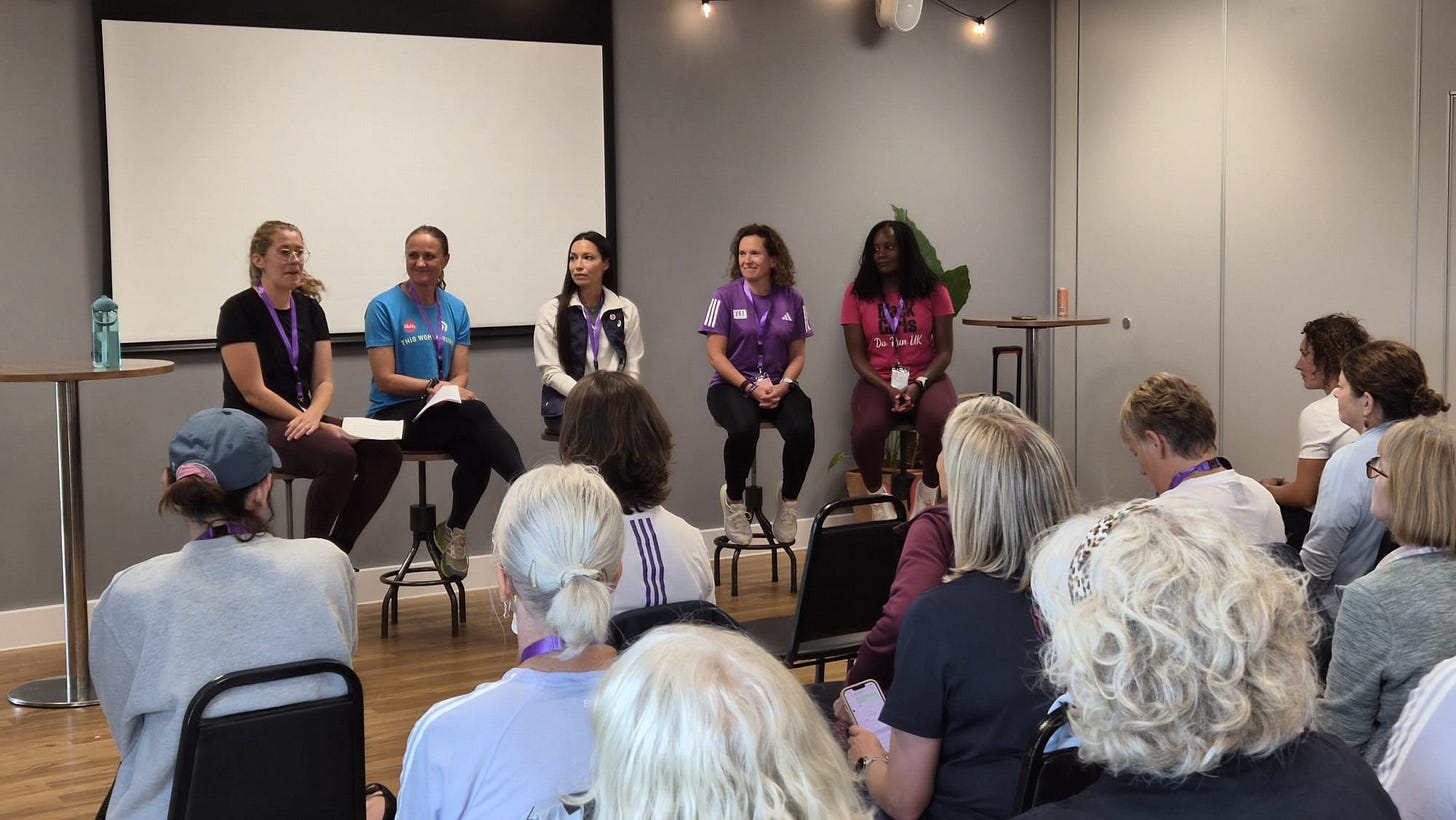
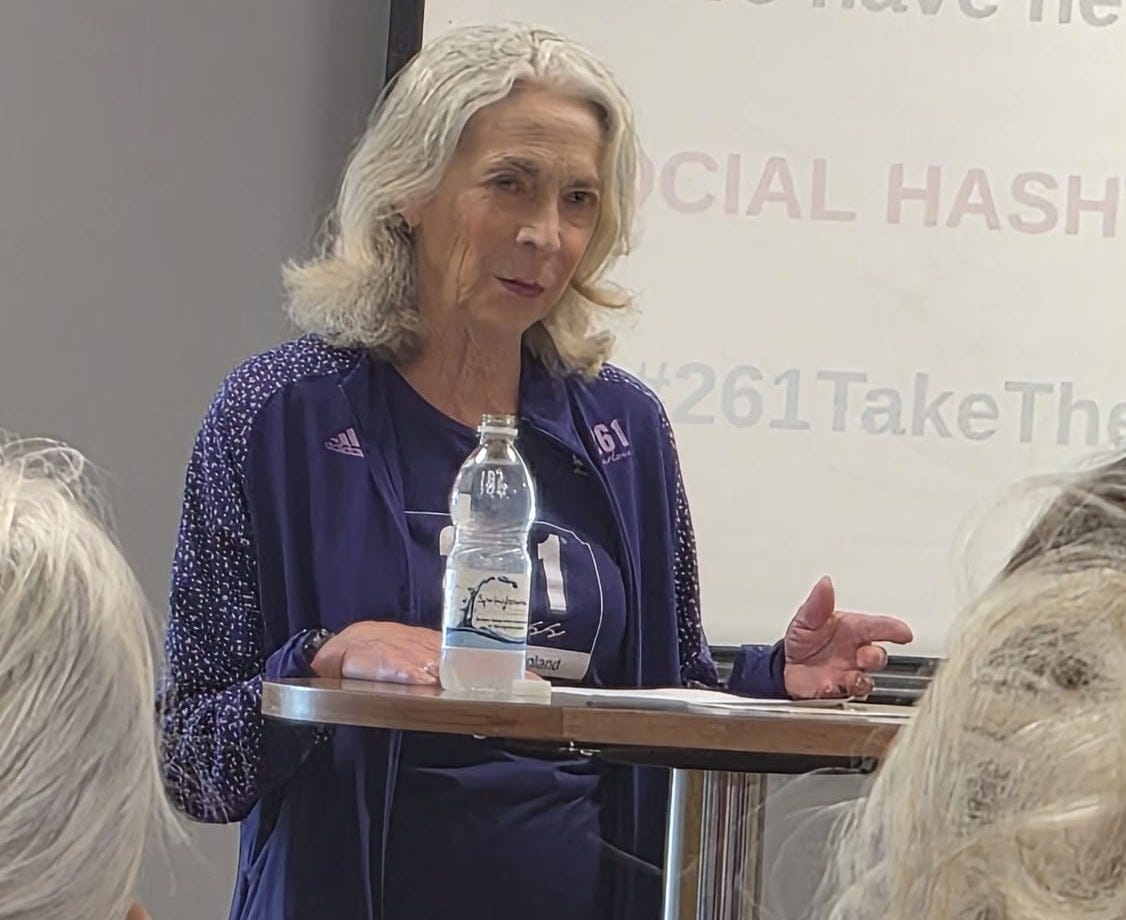
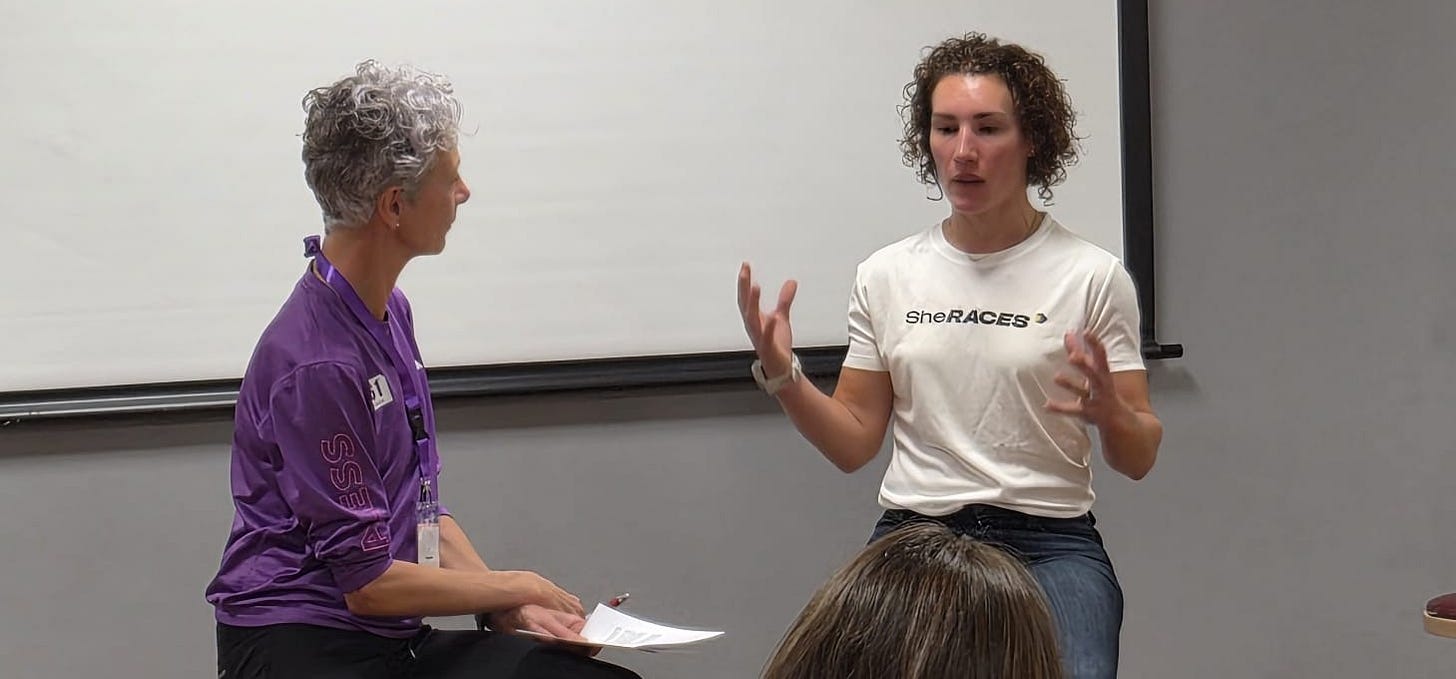
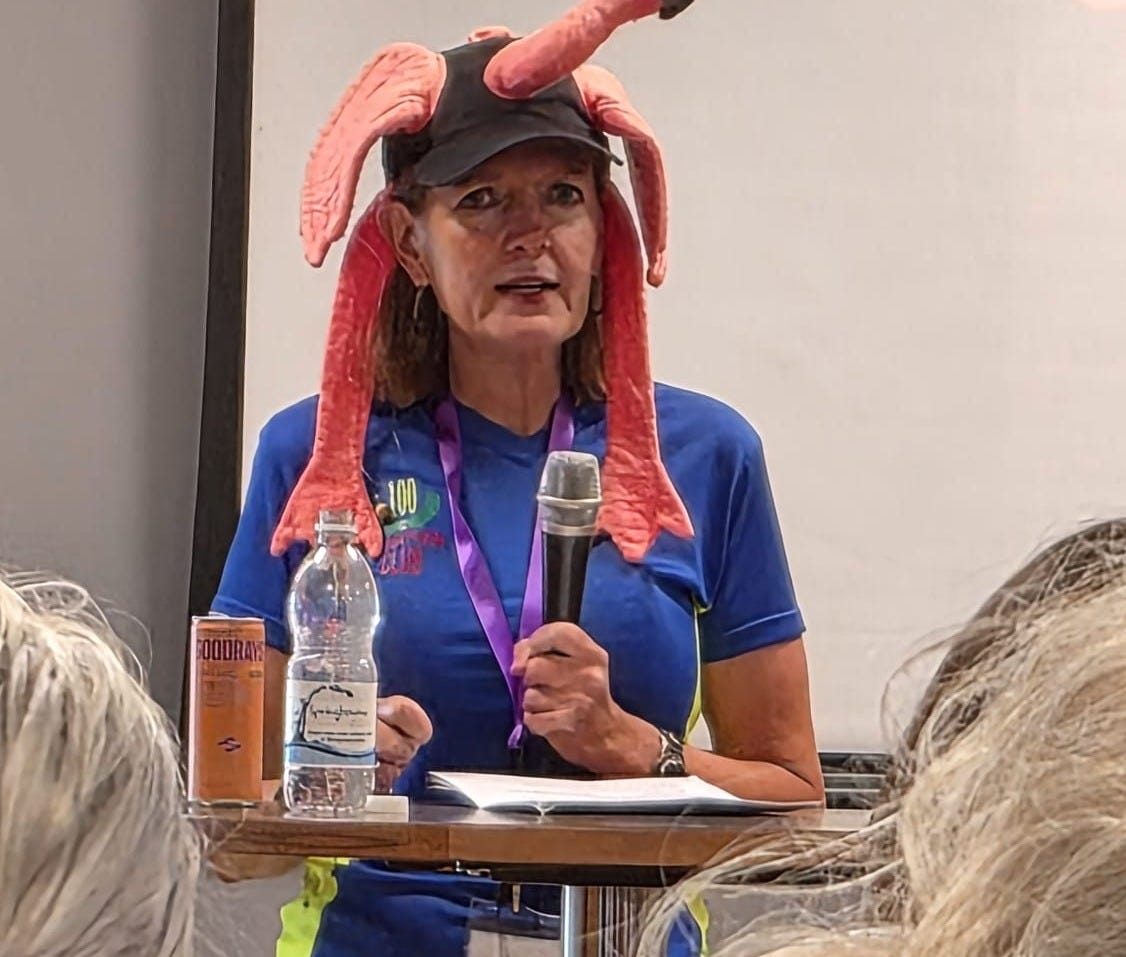
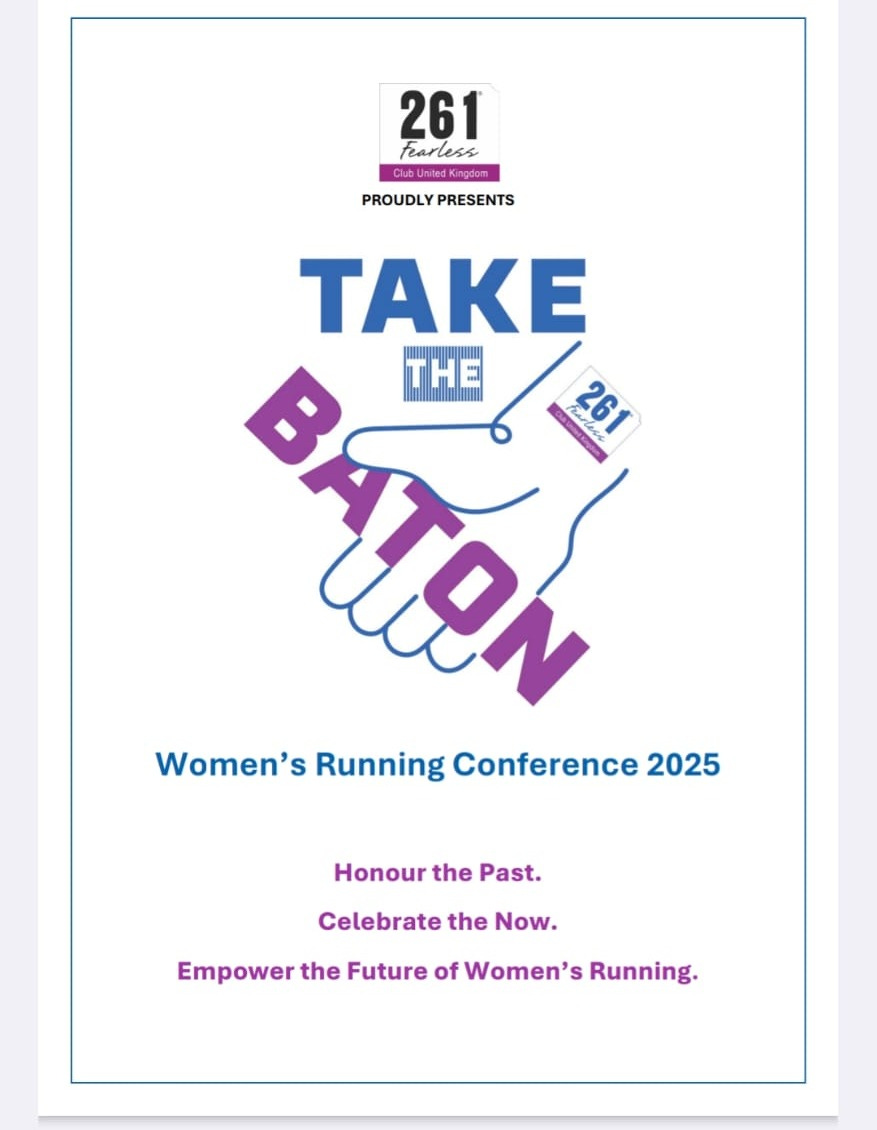
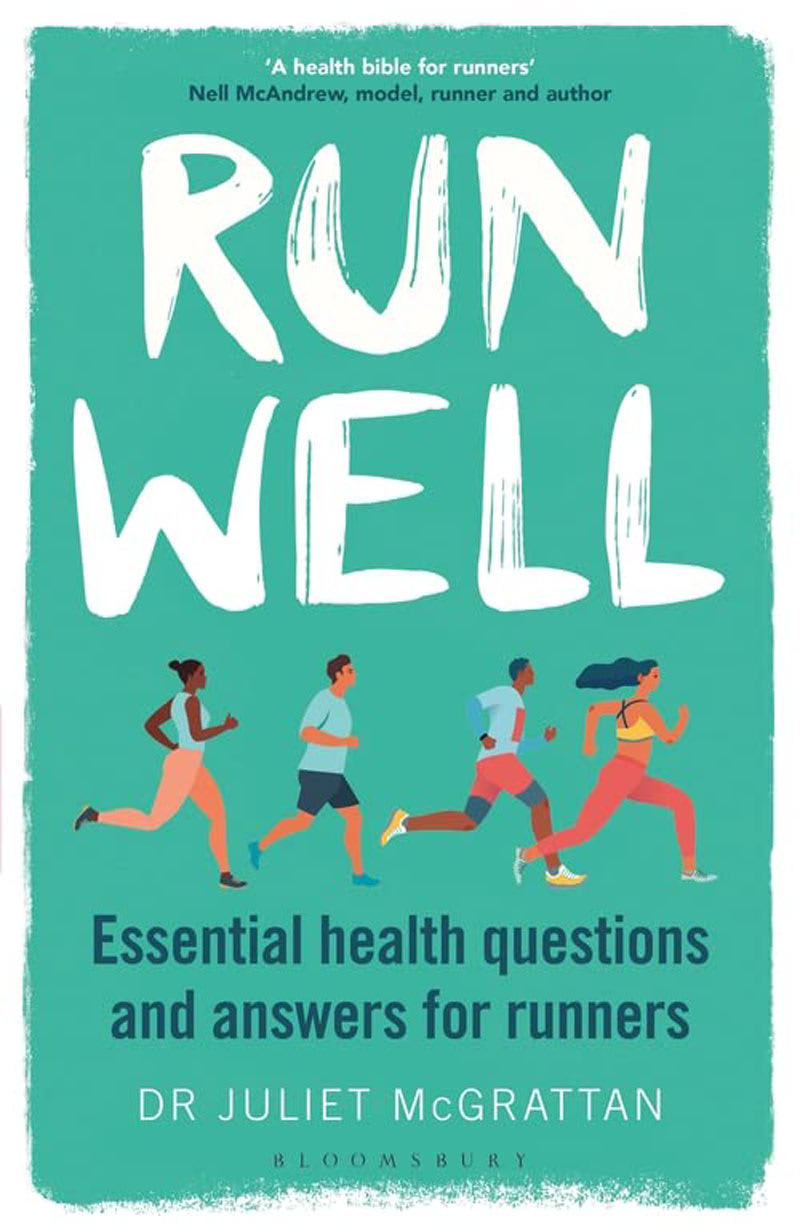

Again, this is a misrepresentation of the facts. Absolutely no one had an issue with your gender or felt that you shouldn’t have an opinion as a woman. Nobody said that equity in sports isn’t important. It is. I read the comments you received and people were angry because a judgement was made based on the panelists’ sex, and not their expertise and experience (plus you had a woman, you had foreign speakers, and panelist’s who specialised in working with women and people with disabilities). People were angry because even a cursory look at the data shows that class and socioeconomic status plays a much bigger part in whether someone can participate in ultra endurance sports than what’s between your legs. How many cleaners and truck drivers do we know that take part in ultra endurance running? This was to be an affordable conference in a working class northern part of England. Do you seriously think that people wouldn’t have benefitted from it, just because the panel didn’t look how you wanted it to? I mean the fact that you’re writing about how attending a conference (which I bet wasn’t in northern England and most likely not accessible to most people) lifted you up is quite ironic? But at least you’re feeling better about yourself.